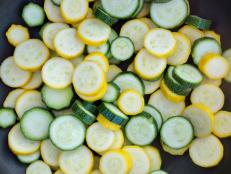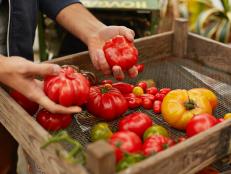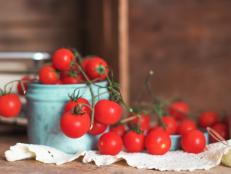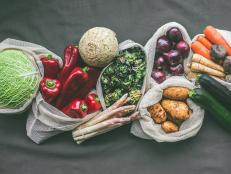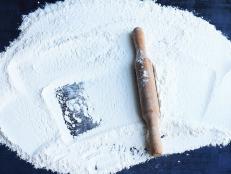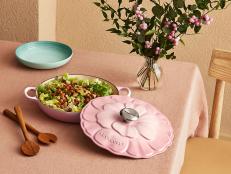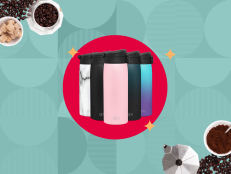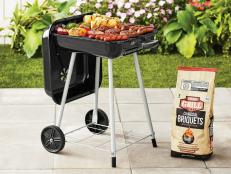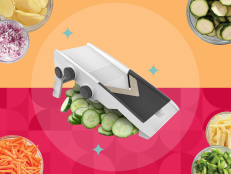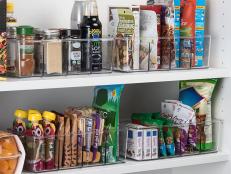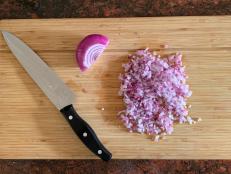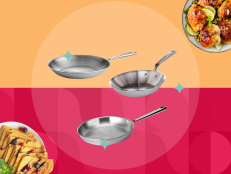How to Use Your Produce Before It Goes Bad
The best ways to use whatever fruits and vegetables you have on hand.
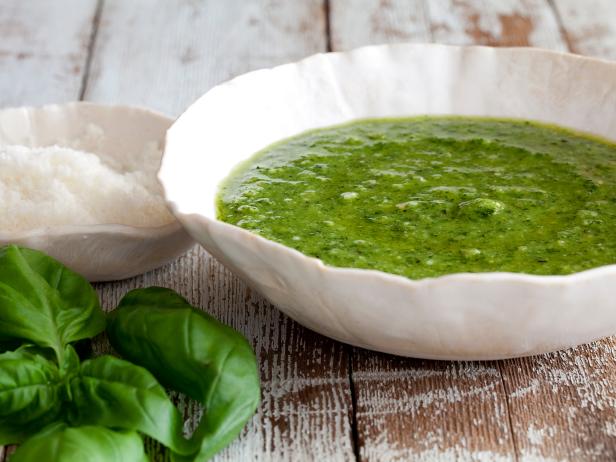
Get a Premium Subscription to the Food Network Kitchen App
Download Food Network Kitchen to sign up and get access to live and on-demand cooking classes, in-app grocery ordering, meal planning, an organized place to save all your recipes and much more.
By Regan Cafiso for Food Network Kitchen
You've dutifully stocked your fridge with loads of fresh fruits and veggies. But now you have much more produce than you could ever eat before it starts to turn bad. What's a home cook to do? Waste not, want not! With a little prep, you can extend the life of perishable produce for loads of delicious meals whenever you're ready to make them.
Leafy Greens
There's plenty to love about leafy greens like spinach, kale and Swiss chard, but they often go limp quickly. If your greens are starting to look a little sad, they can be saved. After cleaning, stir into a soup or saute with olive oil and garlic. For longer storage, blanch greens briefly in boiling salted water, then plunge into an ice bath. Squeeze dry and chop. Cooked greens can be refrigerated in an airtight container for up to 3 days, or frozen for up to 1 month.
Herbs
Fresh herbs add brightness and zing to dishes. Pesto is a classic way to use up an abundance. You can also freeze herbs flat on a sheet tray before wrapping and storing them in freezer bags. Tender herbs such as basil, parsley, tarragon and cilantro can be blended into a paste with some olive oil and frozen in ice cube trays. Transfer the cubes to a freezer bag to use in sauces and marinades. If you've missed the window to use them fresh, try microwaving them to make your own dried herbs.
Broccoli
Cut broccoli into florets, then blanch and shock just like leafy greens. To extend storage time, be sure to dry them well. Cooked broccoli will keep for up to 5 days in the fridge. Or freeze cooked florets in a single layer on a baking sheet until solid. Store tightly wrapped in the freezer for up to 1 month. Use the same technique for asparagus and green beans.
Tomatoes
Give new life to Roma or cherry tomatoes that are past their prime: Halve them and spread in an even layer on a lined baking sheet. Sprinkle with salt and fresh herbs, then roast them low and slow — 250 degrees F — until they are shriveled and juicy. Store the slow-roasted tomatoes covered with olive oil in an airtight container for up to 2 weeks.
Bananas
Break or slice peeled, ripe bananas into chunks and freeze in a single layer until solid. Store the frozen pieces in an airtight container for up to 1 month. Use frozen bananas in smoothies or "nice cream," or thaw them to use in banana bread or muffins.
Avocados
While you can't freeze whole avocados, you can mash and freeze them to add to smoothies or make guacamole on the fly. Simply pit them and scoop the flesh into a bowl. Immediately squeeze fresh lemon juice over and mash well. Scoop the mixture into a resealable plastic freezer bag and pat into an even layer. Press out excess air, seal and freeze for up to 1 month. *Avoid freezing guacamole — the onions and and tomatoes can get watery when thawed.
Berries
If your bounty of berries is looking a little sad, spread them on a baking sheet and freeze solid before transferring to a freezer bag. Use the frozen berries in smoothies and baked goods. You can also make a quick topping for pancakes, waffles or yogurt by cooking fresh berries and maple syrup on the stovetop. This keeps in the fridge for up to 1 week.
Citrus
The juice of fresh citrus fruits can be frozen until you need it. After squeezing, freeze lemon juice in ice cube trays to add just the right amount of acidity to your dishes. Save fresh lime juice until you have enough for a batch of margaritas!
Peppers
Too many peppers? That's a good thing! Roast them over the flame of your gas stove burner or broil until they are blackened all over. Seal in a paper bag or covered bowl to cool, then clean away the charred skin, seeds and membranes. Slice the roasted peppers and mix with a little olive oil and minced garlic. Refrigerate marinated peppers in an airtight container for up to 5 days. You can also freeze unseasoned roasted peppers in an airtight container for up to 1 month.
Onions
Onions are a storage vegetable, which means they can keep for a long time when stored properly: at room temperature in a dark spot with good ventilation. Raw onion does not freeze well. If you find yourself with an abundance of onions, however, try caramelizing them — they'll keep for up to 5 days in the fridge or frozen for up to 2 months. We also love to chop up extra onions to cook into flavor bases with other aromatic vegetables like carrots and celery. These bases freeze well, and are the perfect starter for a future soup, stew, tomato sauce or pot of beans.
Related Content:

























